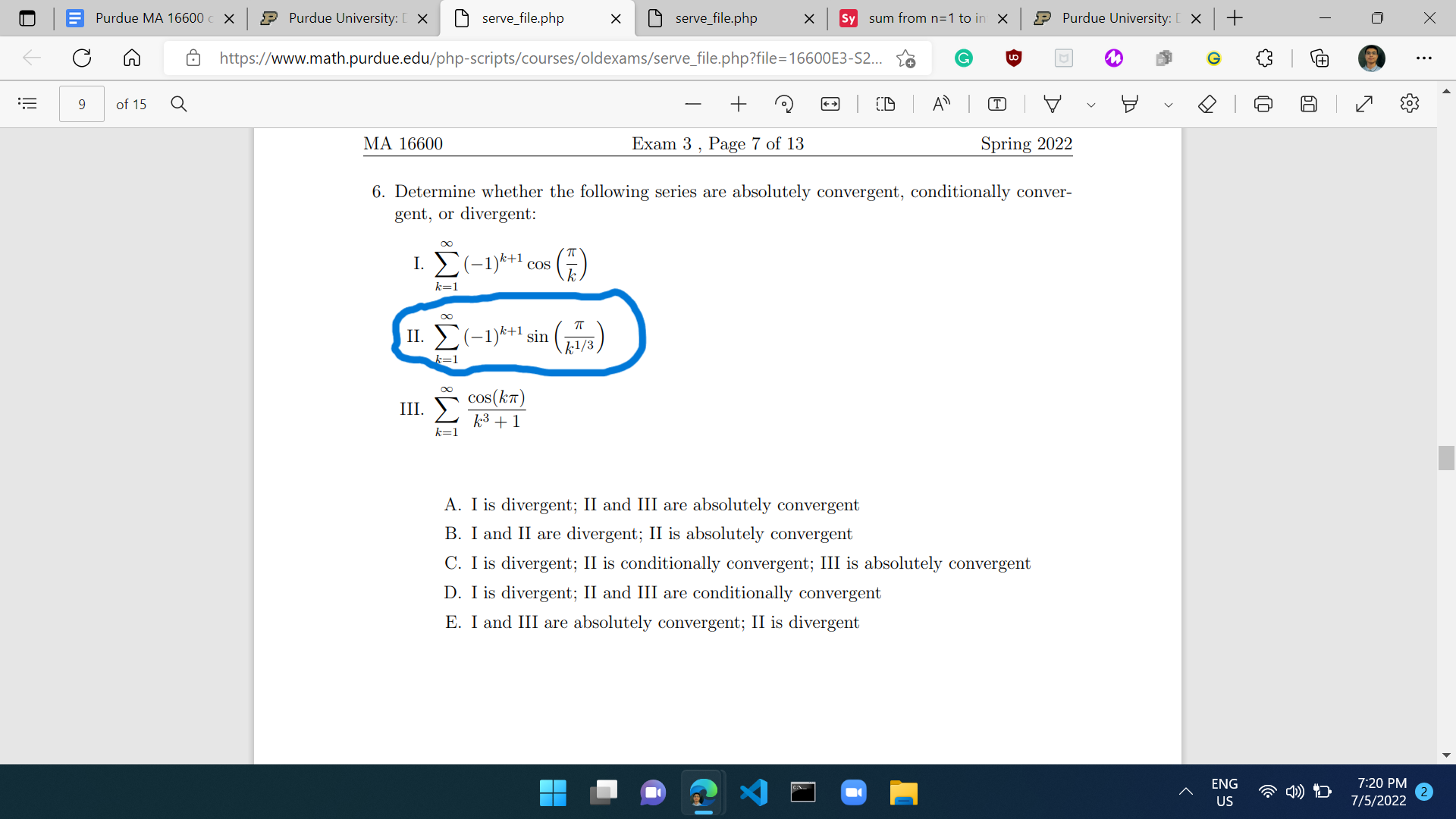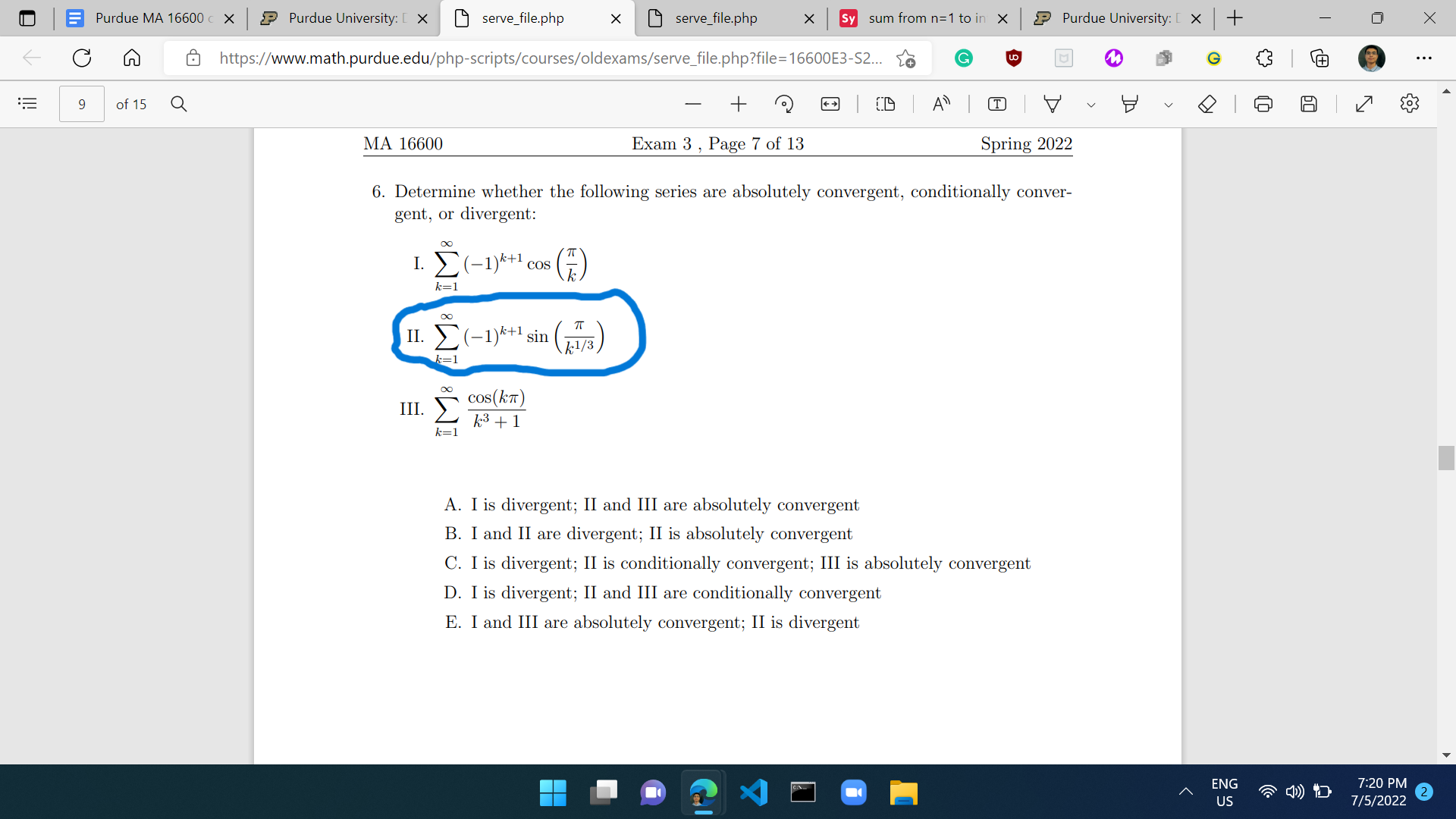Answered step by step
Verified Expert Solution
Question
1 Approved Answer
Purdue MA166 Spring 2022 Exam 3 Question 6 Why is II conditionally convergent? In other words, could you explain why sin(pi/(k^(1/3))) diverges? Purdue MA 16600

Purdue MA166 Spring 2022 Exam 3 Question 6
Why is II conditionally convergent? In other words, could you explain why sin(pi/(k^(1/3))) diverges?

Step by Step Solution
There are 3 Steps involved in it
Step: 1

Get Instant Access to Expert-Tailored Solutions
See step-by-step solutions with expert insights and AI powered tools for academic success
Step: 2

Step: 3

Ace Your Homework with AI
Get the answers you need in no time with our AI-driven, step-by-step assistance
Get Started


